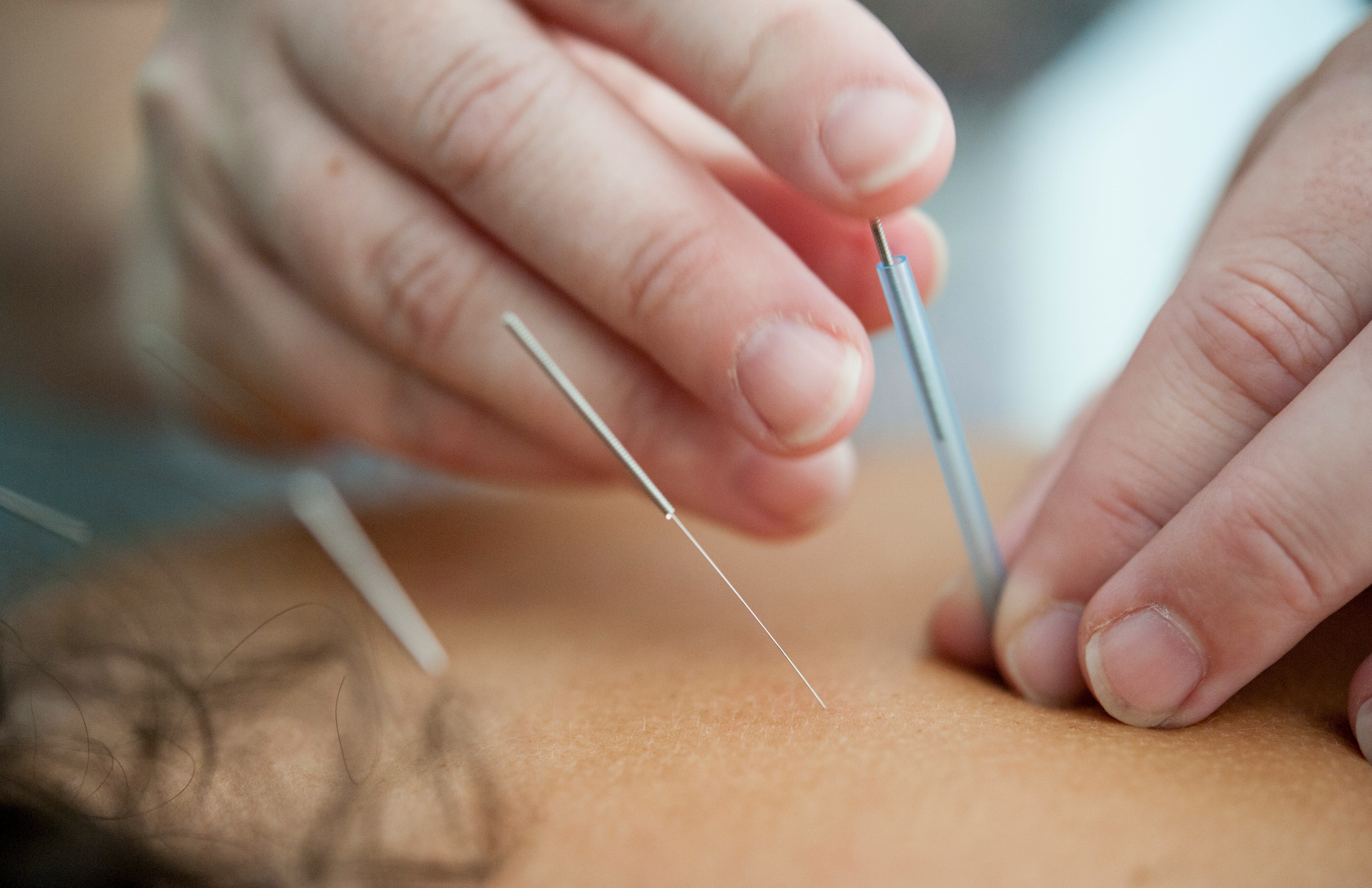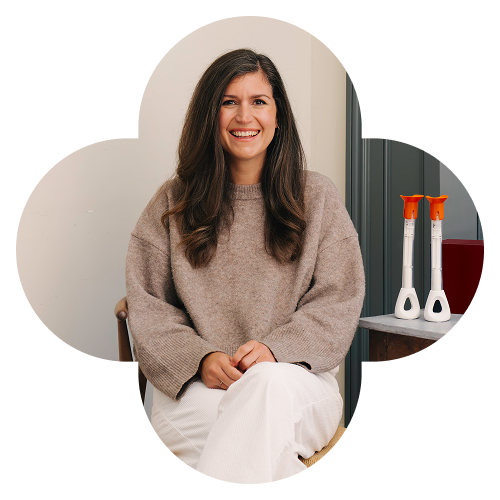Acupuncture for fertility is the only complementary therapy recognised by the HFEA, and evidence suggests it can be helpful in supporting fertility journeys. To find out more about this ancient yet alternative therapy, we decided to get the lowdown from Circe Health acupuncturist Lora Macfarlane, BSc, MBAcC, a London based acupuncturist with more than 20 years experience and expertise in fertility and women’s health.
We chatted about all things acupuncture and fertility, and Lora shared her (extensive!) knowledge with us:

Béa: What is acupuncture and how does it work?
Lora: Acupuncture is one of the earliest forms of holistic medicine. Originating from traditional Chinese medicine, it is an energy-based practice whereby meridian points are stimulated with fine needles in order to restore homeostasis in the body.
The mechanism of efficacy of acupuncture lies in its ability to increase blood flow through areas of deficiency and its impact on the autonomic nervous system enabling a state of relaxation and harmony. An acupuncturist uses very thin, single-use sterile needles to initiate a subtle energetic sensation on acupuncture points which is typically painless and usually quite relaxing.
Because acupuncture has been around for centuries, acupuncturists are trained to use techniques that have been refined over centuries. The benefits of acupuncture are well-known. In fact, the World Health Organisation supports acupuncture treatment for a variety of health issues such as chronic pain conditions, headaches and migraines, allergies, arthritis and acknowledges that acupuncture may be helpful in reproductive health and fertility. Standard procedure during acupuncture treatments includes a comprehensive medical history enquiry, checking pulses and observing the tongue for health signs.
Béa: How does acupuncture support us on our fertility journey?
Lora: The fertility journey will be different for each unique individual and there are different ways that acupuncture can be used to support fertility issues, for both men and women.
For thousands of years acupuncture has been used to enhance fertility, improve sexual health, balance hormones, and regulate the menstrual cycle. And given acupuncture’s holistic approach, a wide range of health factors are taken into consideration when receiving acupuncture treatment for fertility. This includes menstrual cycles, sleep rhythms, lifestyle, diet and overall mental and physical health. Acupuncture is believed to aid fertility through several mechanisms;
- via regulating hormones
- improving ovarian arterial blood flow and ovarian function in women
- reducing stress and stress hormones,
- balancing the autonomic nervous system and regulating the HPA and HPO axis
- supporting egg quality and improving ovulation
- promote health sperm and sperm count
The British Acupuncture Council say that acupuncture can have a "beneficial treatment effect on clinical pregnancy rate" although as always, they caveat this with "according to GRADE assessment guidelines, the scientific methods of the studies included in this review need to be improved." Often, as acupuncturists we see a lot of sub-fertility in practice which can be improved upon with simple intervention, a woman’s monthly hormonal landscape involves subtle hormonal and energetic shifts which many modern life factors impact. A good fertility acupuncturist can ascertain what needs to be addressed to optimise fertility and do a deep dive to pinpoint any tests or further investigations that could be of benefit such as ovarian reserve testing, tubal patency checks, semen analysis to rule out male factor sub-fertility, hormone blood work amongst others.
The holistic overview of acupuncture is unique in its ability to view the bigger health picture and hone in on specific issues without losing sight of the overall. Some examples of the underlying physical health issues that might cause issues with fertility, and that may be improved through acupuncture treatments, are endometriosis, polycystic ovarian syndrome (PCOS) and fibroids. The fertility journey is often not straightforward and the process of trying to conceive can bring with it a lot of stress and anxiety, so improving physical and mental wellbeing can bring some welcome relief.
Béa: Where can we find acupuncturists to support us?
Lora: Everyone’s fertility journey will be different and the support needed may vary. Acupuncture perfectly compliments Bea’s fertility assessment and at-home treatment, helping you to conceive with an inclusive integrated approach, whether you have underlying conditions or unexplained infertility. On Circe Health, an online booking platform for evidence-based holistic healthcare, you can book your treatments with qualified and highly experienced acupuncturists who specialise in fertility related health concerns.

Circe Health helps you find expert holistic health practitioners, from acupuncture to functional medicine and more, so you can get personalised care that gets to the root cause of your symptom. Check them out here.


Share:
Planning a full house?
How do I look after my mental health when trying to conceive?